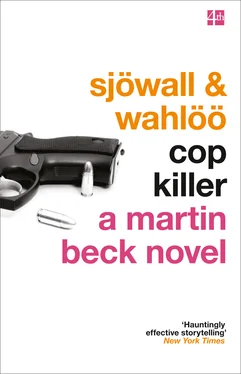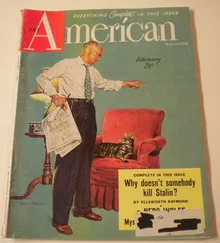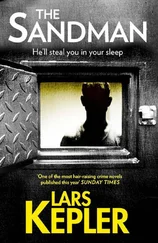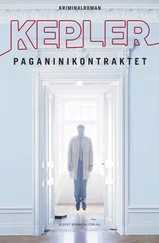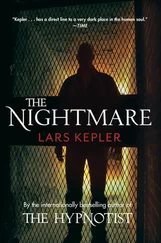This was Sturup Airport, Malmö. So new it still wasn't complete.
He doubted there was any point in completing it. In a way, it was perfect already – epitomizing the fiasco as it did.
Martin Beck dried his hands with his handkerchief. He went back outside and stood in the darkness for a moment feeling lonely.
He hadn't exactly expected the police band lined up in the arrivals hall, or the local chief of police out on horseback to receive him.
But perhaps he had expected something more than nothing at all.
He dug in his pocket for change and considered searching for a pay phone that did not have the cord to its receiver cut or its coin slot stuffed with chewing gum.
Lights cut through the fog. A black-and-white patrol car came sneaking along the ramp and swung in towards the door of the huge saffron-yellow box.
It was moving slowly, and when it drew even with the solitary traveller it came to a stop. The side window was rolled down, and a red-haired individual with skimpy police sideburns stared at him coldly.
Martin Beck said nothing.
After a minute or so the man raised his hand and beckoned to him with his finger. Martin Beck walked over to the car.
‘What are you hanging around here for?’
‘Waiting for transport.’
‘Waiting for transport! You don't say!’
‘Perhaps you can help me.’
The constable looked dumbfounded.
‘Help you? What do you mean?’
‘I've been delayed. I thought maybe I could use your radio.’
‘Who do you think you are?’
Without taking his eyes off Martin Beck, he threw several remarks back over his shoulder.
‘Did you hear that? He says he thought maybe he could use our radio. I reckon he thinks we're some kind of pimp service or something. Did you hear him?’
‘I heard,’ said the other policeman wearily.
‘Can you identify yourself?’ said the first policeman.
Martin Beck put his hand to his back pocket, but changed his mind. He let his arm drop.
‘Yes,’ he said. ‘But I'd really rather not.’
He turned on his heel and walked back to his bag.
‘Did you hear that?’ the policeman said. ‘He says he'd rather not. He thinks he's pretty tough. Do you think he's tough?’
The sarcasm was so heavy that the words fell to the ground like bricks.
‘Oh, forget it,’ said the man who was driving. ‘Let's not have any more trouble tonight, okay?’
The redhead stared hard at Martin Beck for a long time. Then there was a mumbled conversation, and the car began to roll away. Sixty feet off it stopped again so the policemen could observe him in the rear-view mirror.
Martin Beck looked in a different direction and sighed heavily.
As he stood there at this moment, he could have been taken for anyone at all.
During the last year he had managed to get rid of some of his police mannerisms. He no longer invariably clasped his hands behind his back, for example, and he could now stand in one place for a short time without rocking back and forth on the balls of his feet.
Although he had put on a little weight, he was still, at fifty-one, a tall, fit, well-built man, with a slight stoop. He also dressed more comfortably than he had, though there was no laboured youthfulness in his choice of clothes – sandals, Levi's, turtleneck, and a blue Dacron jacket. On the other hand, it might be considered unconventional for a detective superintendent of police.
For the two officers in the patrol car it was obviously difficult to swallow. They were still pondering the situation when a tomato-coloured Opel Ascona swung up in front of the terminal building and braked to a stop. A man climbed out and walked around the car.
‘Allwright?’ he said.
‘Beck.’
‘People generally get a chuckle out of that.’
‘A chuckle?’
‘You know, they laugh at the way I say Allwright.’
‘I see.’
Laughter did not come quite that easily to Martin Beck.
‘And you'll have to admit it is a silly name for a policeman. Herrgott Allwright. So I usually introduce myself that way, like it was a question. Allwright? It sort of flusters people.’
He stowed the suitcase in the boot of his car.
‘I'm late,’ he said. ‘No one knew where the plane was going to come down. I took a chance it would be Copenhagen, as usual. So I was already in Limhamn when I got the word it had landed here. Sorry.’
He peered enquiringly at Martin Beck, as if trying to determine whether his exalted guest was out of sorts.
Martin Beck shrugged his shoulders.
‘It doesn't matter,’ he said. ‘I'm not in any hurry.’
Allwright threw a glance at the patrol car, which remained in position with its engine idling.
‘This isn't my district,’ he said with a grin. ‘They're from Malmö. We'd better go before we get arrested.’
The man obviously had a ready laugh, which, moreover, was soft and infectious.
But still Martin Beck wouldn't smile. Partly because there wasn't all that much to smile at, and partly because he was trying to form an opinion of the other man – sketch out a sort of preliminary description.
Allwright was a short, bow-legged man – short, that is, for the police service. With his green rubber boots, his greyish-brown twill suit, and the sun-bleached safari hat on the back of his head, he looked like a farmer, or, at any rate, like a man with his own territory. His face was sunburned and weatherbitten, and there were laugh lines around the corners of his lively brown eyes. And yet he was representative of a certain category of rural policeman. A type of man who didn't fit in with the new conformist style and was therefore on his way to dying out, but was not yet completely extinct.
He was probably older than Martin Beck, but he had the advantage of working in calmer and healthier surroundings, which is not to say that they were calm and healthy, by any means.
‘I've been here almost twenty-five years. But this is a first for me. The National Murder Squad, from Stockholm, on a case like this.’
Allwright shook his head.
‘I'm sure everything will work out fine,’ said Martin Beck. ‘Or else…’
He finished the sentence silently to himself: Or else it won't work out at all.
‘Exactly,’ Allwright said. ‘You people from the Murder Squad understand this kind of case.’
Martin Beck wondered if that was the polite plural, or if he were really referring to both of them. Lennart Kollberg was on his way from Stockholm by car and could be expected the next day. He had been Martin Beck's right-hand man for many years.
‘The story's going to leak out pretty soon,’ Allwright said. ‘I saw a couple of characters in town today – reporters, I think.’
He shook his head again.
‘We're not used to this sort of thing. All this attention.’
‘Someone has disappeared,’ said Martin Beck. ‘There's nothing so unusual about that.’
‘No, but that's not the crux of the matter. Not at all. Do you want to hear about it?’
‘Not right now, thanks. If you won't take it amiss.’
‘I never take anything amiss. Not my style.’
He laughed again, but stopped himself and added, soberly, ‘But then I'm not in charge of the investigation.’
‘Maybe she'll turn up. That's usually the way.’
Allwright shook his head for the third time.
‘I don't think so,’ he said. ‘In case my opinion makes any difference. Anyway, it's an open-and-shut case. Everyone says so. They're probably right. All this nonsense with the…I mean, excuse me, but calling in the Murder Squad and all that is just because of the unusual circumstances.’
‘Who says so?’
‘The chief. The boss.’
‘The Chief of Police in Trelleborg?’
‘That's the man. But you're right, let's let it go for now. This is the new airport road we're on. And now we're coming out on the motorway from Malmö to Ystad. Also brand new. You see the lights off to the right?’
Читать дальше
